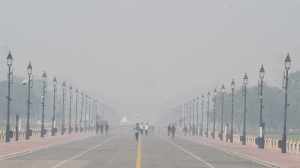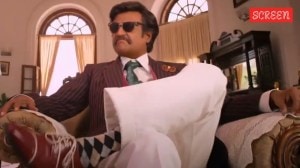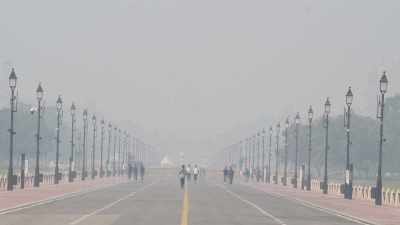Stay updated with the latest - Click here to follow us on Instagram
BMW case-Sanjeev Nanda: Change law before hounding for pound of flesh
Nanda,who has served 2 years in jail,counters Delhi Polices attempt to enhance his punishment.
Sanjeev Nanda,who has served two years in jail for the 1999 BMW hit-and-run case,countered the Delhi Polices attempt to enhance his punishment. His counsel Ram Jethmalani told the Supreme Court on Wednesday that if the state was hounding for his pound of flesh, it should first change the law in the Indian Penal Code (IPC) on causing death by rash and negligent acts.
Referring to stricter laws in England,he said the state could bring in a new law,but the police could not ask the court for punishing Nanda under the stringent charge of culpable homicide not amounting to murder in the current scenario.
If the state (police) is hounding for his pound of flesh,then they must amend the law first,like in England. But they cannot kill the criminal jurisprudence and the applicability of the IPC provisions as they stand today, senior advocate Jethmalani,appearing for Nanda,told a bench of Justice Deepak Verma and Justice K S Radhakrishnan.
The Delhi High Court in July 2009 reduced Nandas punishment from five to two years in jail,holding that he could not have the knowledge that the tragedy could strike by his rash and negligent driving.
He was behind the wheels in an inebriated condition when he mowed down six persons,including three policemen,with his BMW car on January 10,1999.
Although the incident was gruesome, the High Court had noted it could not be held that it occurred within the knowledge of the Sanjeev,the grandson of former naval chief S M Nanda.
It had modified the trial court order by holding him guilty under Section 304-A (causing death due to rash and negligent act) and acquitting him of Section 304 (culpable homicide not amounting to murder). Nanda,after completing his term,is currently out of jail.
Police had subsequently challenged the order in the apex court,claiming that he should be convicted under Section 304 part II of the IPC. It prescribes 10 years imprisonment as maximum punishment.
Concluding his arguments in the case,Jethmalani,with assistance from advocate Sandeep Kapur,said there was no legal basis for the prosecutions demand to convert his conviction into a stricter charge.
I admit the incident was an unfortunate one and negligent. But he has suffered maximum punishment of two years behind the bars,besides the travails of the protracted trial. Dense fog on the scene of incident was a relevant factor. I am also admitting that he was drunk and ultimately proved wrong in thinking that he could drive under the influence of liquor. But there was no intention of causing injury to anyone and,hence,the prosecutions argument is without basis, the counsel said.
Jethmalani said even the grossest form of negligence cannot hold Nanda guilty under culpable homicide not amounting to murder.
He did not challenge the High Courts punishment and went back to jail so that he could see a closure and get married to a woman,who had been waiting for him all this while. He has already suffered a lot, he said.
The court posted the matter for Tuesday to hear the arguments on behalf of businessmen Rajeev Gupta and his two employees,Bhola Nath and Shyam Singh,who were punished for destruction of evidence in the case.
Gupta was sentenced to six months in jail,while the other two were awarded imprisonment for three months.







